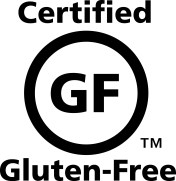Scientists Isolate Protein Fragments Responsible for Celiac Disease
 Researchers in Australia claim to have found the three protein fragments in gluten which are most harmful to people who suffer from celiac disease. Celiac is an autoimmune disorder of the small intestine that affects more than 2 million people in the United States and which requires a restricted diet, as gluten-containing grains like wheat, barley, and rye and the many food products derived from them can trigger a nasty immune reaction of the lower intestine which interferes with the body’s ability to absorb nutrients.
Researchers in Australia claim to have found the three protein fragments in gluten which are most harmful to people who suffer from celiac disease. Celiac is an autoimmune disorder of the small intestine that affects more than 2 million people in the United States and which requires a restricted diet, as gluten-containing grains like wheat, barley, and rye and the many food products derived from them can trigger a nasty immune reaction of the lower intestine which interferes with the body’s ability to absorb nutrients.
Currently, the only guaranteed way to keep celiac in check is to avoid consuming gluten. However, the isolation of the so-called “toxic trio” of peptides, which one of the lead researchers called the “holy grail in coeliac disease research,” could fuel efforts to develop vaccines so that people with celiac can tolerate gluten-containing foods.
From the celiac lab’s press release:
This knowledge has already been used by Melbourne-based biotech company, Nexpep Pty Ltd, to develop a ‘peptide-based’ immunotherapy that aims to desensitise people with coeliac disease to the toxic effects of gluten. Nexpep’s Phase 1 trials of the therapy were completed in June and final results are expected in coming months.
The immunotherapy works by exposing people with coeliac disease to small amounts of the three toxic peptides and is based upon the same principles as desensitisation for allergies.
Dr Anderson said although coeliac disease could be managed with a gluten-free diet, compliance with the diet is often challenging and nearly half the people on the diet still have residual damage to their small intestine. “Consequently, the immunotherapy and three other drugs are under development to help people with coeliac disease.”
While the language of the release suggests that a celiac vaccine could be a ways off, this is news that inspires hope: While gluten-free foods are available from an increasing number of supermarkets and are even consumed by people without celiac due to supposed health benefits, even gluten-free diets are an imperfect fix. According to the lab behind the study, nearly half of celiac patients on gluten-free diets “still have residual damage to their small intestine.” There are no guarantees at present, but followup research towards building the immunity of people with celiac to these peptides could be a better bet for giving them access to a wider diet and preserving their health.
(via US News; Techvert via Digg. Certified Gluten-Free logo via GFCO)
Have a tip we should know? [email protected]